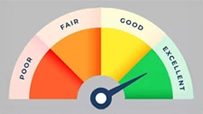How to Leverage Recurring Deposits for Educational Savings
September 01, 2025

Are you looking for a reliable and safe way to save money for your child's education? If so, recurring deposits (RDs) could be the perfect solution. RDs allow you to make regular deposits and earn good returns without any risk. In this article, we will explore how to leverage recurring deposits for educational savings can help you build a college fund to ensure a bright future for your child's education.
How to Leverage Recurring Deposits for Educational Savings
Select the Right Bank/Financial Institution
The first step in leveraging recurring deposits for educational savings is choosing the right bank. When selecting a bank, consider their interest rates and other terms and conditions of the recurring deposit account. The interest rates can vary from bank to bank, so opt for one that offers competitive rates on your RD. Ujjivan RD rates range between 6.5% and 8.05%* (addition 0.50% interest rate for senior citizens).
Choose a Tenure that Aligns to Your Goals
When opening an RD account, it is crucial to select a tenure that aligns with your financial goal. If you need to pay your child's education fees in 12 months, choose a tenure of 12 months. By carefully choosing the suitable tenure and amount, you can ensure that you have the returns you need to meet specific educational expenses.
Budget your RD Amount Wisely
Before opening an RD account, consider the amount of money that will be deducted every month. It is important to choose an amount that you can regularly commit to without affecting your current cash flow for other necessary expenses.
Refrain from Premature Withdrawal
It is important to avoid premature withdrawal of your deposits in an RD account unless it is an emergency or financial stress. Premature withdrawals may incur penalties and hinder your goal of building an educational fund. Calculate your returns and align them with your goals before making any withdrawal decisions.
Look for Flexi Recurring Deposit
Some banks offer the option of flexi recurring deposits, allowing you to increase your recurring deposit amount every month to target a higher amount at maturity. However, it is advisable to opt for this option only when you have surplus funds to increase the deposit amount.
Select RDs that Provide Loan Facility
Your RD account also comes with a loan facility. You can take a loan on the 80-90% value of your RD in case of any immediate need for funds. However, it is recommended to use this option only when you are in dire need of funds.
Add Nominee
Always ensure that you have added a nomination in your RD account. By nominating someone, you can safeguard your investment and ensure that your nominee receives the money in case something happens to you.
Tips and Strategies for Saving and Investing to Fund Your Child Education Expenses
Set Your Goals and Start at the Earliest
When it comes to financial planning for education, starting early is key. The earlier you start saving and investing, the greater your potential to accumulate the necessary funds. Begin by setting clear goals for education, whether it's saving for your child's future education or planning for your own educational pursuits.
Plan a Realistic Budget
To effectively save for education, establish a realistic budget. Differentiate between fixed and variable costs, such as tuition fees, accommodation, transportation, and living expenses.
Use the Power of Compounding to Your Advantage
Compound interest is a powerful tool when it comes to long-term savings and investments. By starting early and consistently contributing to education savings, you can benefit from compounding returns, allowing your funds to grow exponentially over time.
Get Professional Advice
While it's possible to navigate education planning independently, seeking professional advice can provide valuable insights and guidance. Financial advisors specialising in education planning can help you assess your financial situation, set realistic goals, and develop a customized investment strategy tailored to your needs.
Final Thoughts
Recurring deposits are a reliable and safe investment option for building educational resources, like school or college fund. By choosing the right bank, selecting the appropriate tenure and amount, avoiding premature withdrawals, and starting the investment early, you can effectively leverage recurring deposits for educational savings.
Start small, dream big! Invest in Ujjivan Small Finance Bank’s Recurring Deposit and enjoy higher interest rates! Save for your long- and short-term goals with our RD and live a stress-free financial life. Start investing with just ₹100!
Disclaimer:
The contents herein are only for informational purposes and generic in nature. The content does not amount to an offer, invitation or solicitation of any kind to buy or sell, and are not intended to create any legal rights or obligations. This information is subject to updation, completion, amendment and verification without notice. The contents herein are also subject to other product-specific terms and conditions, as well as any applicable third-party terms and conditions, for which Ujjivan Small Finance Bank assumes no responsibility or liability.
Nothing contained herein is intended to constitute financial, investment, legal, tax, or any other professional advice or opinion. Please obtain professional advice before making investment or any other decisions. Any investment decisions that may be made by the you shall be at your own sole discretion, independent analysis and evaluation of the risks involved. The use of any information set out in this document is entirely at the user’s own risk. Ujjivan Small Finance Bank Limited makes no representation or warranty, express or implied, as to the accuracy and completeness for any information herein. The Bank disclaims any and all liability for any loss or damage (direct, indirect, consequential, or otherwise) incurred by you due to use of or due to investment, product application decisions made by you on the basis of the contents herein. While the information is prepared in good faith from sources deemed reliable (including public sources), the Bank disclaims any liability with respect to accuracy of information or any error or omission or any loss or damage incurred by anyone in reliance on the contents herein, in any manner whatsoever.
To know more about Ujjivan Small Finance Bank Products Visit:"https://www.ujjivansfb.in"
All intellectual property rights, including copyrights, trademarks, and other proprietary rights, pertaining to the content and materials displayed herein, belong
to Ujjivan Small Finance Bank Limited or its licensors. Unauthorised use or misuse of any intellectual property, or other content displayed herein is strictly prohibited and the same is not intended for distribution to, or use by, any person in any jurisdiction where such distribution or use would (by reason of that person’s nationality, residence or otherwise) be contrary to law or registration or would subject Ujjivan Small Finance Bank Limited or its affiliates to any licensing or registration requirements.
FAQs
1. How to Leverage Recurring Deposits for Educational Savings
Recurring deposits allow you to make regular deposits towards your savings while earning good returns over time. By consistently contributing to an RD account, you can build a college fund for your child's education.
2. Can I choose the tenure of my recurring deposit according to my educational goal?
Yes, the tenure of your recurring deposit should align with your financial goal. If you need to pay for your child's education in a specific timeframe, choose a tenure that matches that duration.
3. What happens if I choose the wrong amount for my recurring deposit?
Choosing the wrong amount might put a financial burden on you. It is important to choose an amount that you can regularly commit to without affecting your current cash flow for other necessary expenses.
4. Can I withdraw money from my recurring deposit before its maturity?
It is advisable to avoid premature withdrawal of your deposits in an RD account unless it is an emergency or financial stress. Premature withdrawals may incur penalties and hinder your goal of building an educational fund.
5. What is a flexi recurring deposit?
Flexi recurring deposits allow you to increase your recurring deposit amount every month to target a higher amount at maturity. This option can be useful when you have surplus funds to increase the deposit amount.
6. Can I take a loan against my recurring deposit?
Yes, most banks offer a loan facility against the value of your recurring deposit. However, it is recommended to use this option only when you are in dire need of funds.
Latest Blogs

Credit Score Not Improving? 5 Mistakes You Might Be Making
August 13, 2025
For most of us, a credit score feels like a silent judge sitting in the background of our financial lives.

Banking Jargon Decoded: 15 Key Terms You Should Know
May 13, 2025
Banking feels simple on the surface; deposit money, withdraw when needed, pay bills, or transfer funds.

The ₹10 Lakh Rule for Cash Deposit Explained
August 13, 2025
Every day, millions of Indians walk into their banks to deposit cash, sometimes a few thousand rupees, sometimes several lakhs.

Missed Income or Errors? Here’s How ITR-U Can Save You from Penalties
August 13, 2025
Less than three weeks remain before the September 15 deadline to update income tax returns.

This Current Account is Designed to Empower Your Business
June 16, 2025
In the fast-paced world of business, having the right bank account can be a game-changer.





